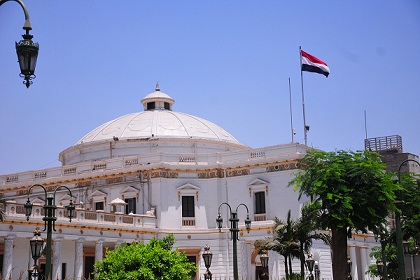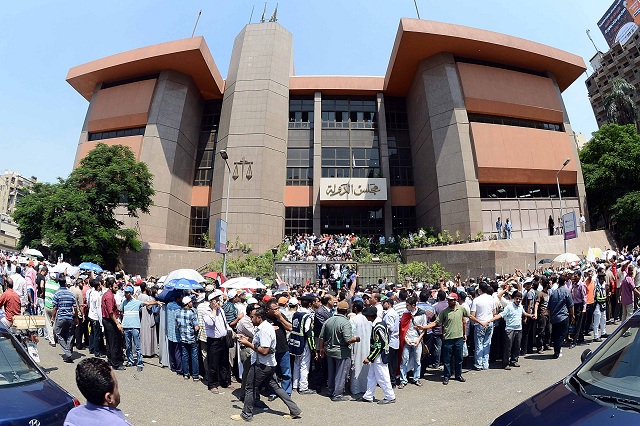Market unaffected by confiscated Muslim Brotherhood assets: Economic expert
Assets of hundreds of Muslim Brotherhood members, NGOs and several companies have…
Lawsuit demands banning ‘Rabaa’ slogan in elections
Administrative court postponed lawsuit to Tuesday
Political parties seek ‘immunity from dissolution’ for next parliament
Parties submit new proposals for elections to president
Court rules ‘lack of jurisdiction’ over Al-Nour Party dissolution
Ruling is “another victory for the party”, says party spokesperson Nader Bakar
Court decides on legitimacy of ’religiously-affiliated parties’
Lawsuit was filed against the legitimacy of religiously-affiliated parties and their participation…
Muslim Brotherhood becomes an NGO
The move is seen as a deterrent to possible attacks on the…
Constituent Assembly faces dissolution on Tuesday
Amid controversial debates over origins of power in Egypt, lawyers expect the…





